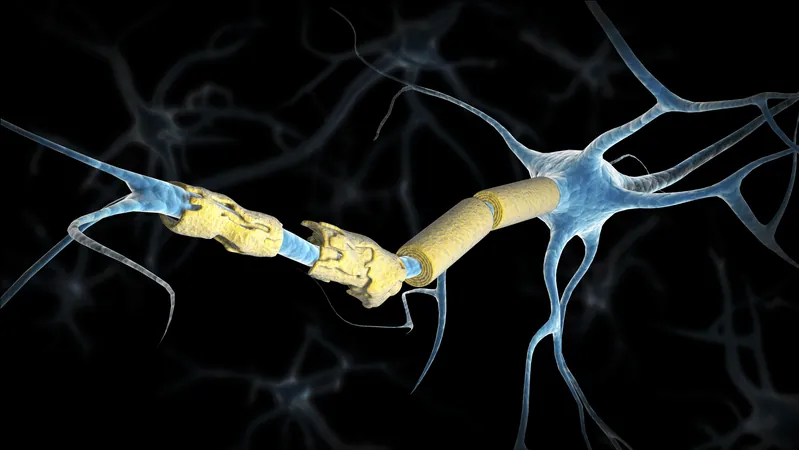
Early Intervention for MS: A Game Changer in Disability Reduction!
2024-09-18
Introduction
A groundbreaking study from the University of Melbourne has revealed that initiating antibody therapy for multiple sclerosis (MS) at a young age can drastically lessen disability in affected children as they transition into adulthood. The research, presented by Dr. Sifat Sharmin at the European Committee for Treatment and Research in Multiple Sclerosis conference, emphasizes the crucial role of early intervention in treating pediatric MS cases.
Key Findings
This study highlights the critical importance of early intervention in pediatric-onset MS,” Dr. Sharmin stated. “Our findings indicate that starting high-efficacy therapies such as ocrelizumab, rituximab, or natalizumab during childhood can lead to significantly improved long-term outcomes, preserving neurological function and reducing disability progression.
Understanding Multiple Sclerosis
Multiple sclerosis is a chronic autoimmune disease that severely damages the myelin sheath surrounding nerves in the spinal cord and brain. This debilitating condition currently impacts approximately 2.8 million individuals worldwide, with most cases diagnosed in adults in their late twenties or early thirties. Alarmingly, about 5% of MS cases manifest before the age of 18, and an even smaller fraction—around 1%—occurs before age 10.
Study Methodology
In this pivotal study, Dr. Sharmin and her team evaluated the disability outcomes of 282 patients diagnosed with MS before the age of 18, tracking their progress as they reached ages 23 to 27. They specifically examined the impact of starting antibody therapy (ocrelizumab, rituximab, or natalizumab) at earlier ages on these young patients.
Results of the Study
The group consisted of 110 patients who began therapy between 12 and 17 years old, and 172 who started treatment later, between the ages of 20 and 22. The researchers assessed the Expanded Disability Status Scale (EDSS), a standard metric for gauging disability in MS patients, to determine outcomes in both groups.
Statistical Outcomes
Initial scores showed a median of 1.5 in the early treatment cohort and 1.3 in the later cohort. Following an observational period of 8.5 to 14.0 years, disability progression was evident: an increase of 0.4 EDSS points in the early treatment group versus a significant rise of 0.95 points in the late treatment cohort.
Implications for Treatment
Despite these promising results, many clinicians remain hesitant to prescribe antibody therapy to children due to limited data on the efficacy and safety of these treatments in younger populations. However, Dr. Sharmin argues that this research provides a compelling case for redefining treatment guidelines.
Call to Action
These findings are a strong argument for rethinking current treatment protocols,” she asserted. “By facilitating earlier access to effective treatments, we can substantially enhance the quality of life for children battling MS while mitigating the long-term burden of disability.
Conclusion
As the medical community grapples with the significance of early intervention strategies, this study serves as a beacon of hope for young MS patients and their families, potentially transforming the landscape of treatment and care. The implications of this research call for urgent discussion among healthcare providers, urging them to consider the benefits of starting therapy sooner rather than later.
Don't miss out on this revolutionary discovery! Will it change the fate of thousands of young patients struggling with MS? Stay tuned as we watch for updates in the world of MS treatment!




 Brasil (PT)
Brasil (PT)
 Canada (EN)
Canada (EN)
 Chile (ES)
Chile (ES)
 España (ES)
España (ES)
 France (FR)
France (FR)
 Hong Kong (EN)
Hong Kong (EN)
 Italia (IT)
Italia (IT)
 日本 (JA)
日本 (JA)
 Magyarország (HU)
Magyarország (HU)
 Norge (NO)
Norge (NO)
 Polska (PL)
Polska (PL)
 Schweiz (DE)
Schweiz (DE)
 Singapore (EN)
Singapore (EN)
 Sverige (SV)
Sverige (SV)
 Suomi (FI)
Suomi (FI)
 Türkiye (TR)
Türkiye (TR)